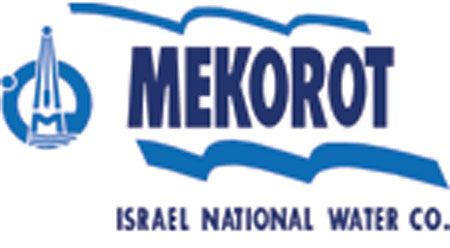Israel succeeded in channelizing and supplying water from reservoirs in the north to areas in the south due to tireless efforts and research. It helped Israel bring the problem of water scarcity under control. However, taking into consideration the population that was increasing every day and the progress the Israeli society, it was quite clear that the use of water would continually be on rise. For this reason, the Israeli researchers realized that the chief source of water for Israel, the Sea of Galilee and the traditional sources like rainfall would not suffice all of Israel’s water requirements.
In addition, global warming was already contributing to the reduction in the annual rainfall in Israel. Also, in the last few years, the Jordan River that flows north to south and feeds the Sea of Galilee on the way was observed to be drying up. Subsequently began the exploration for alternative sources of water.

‘Mekorot’, the national water company of Israel, which manages the entire ‘National Water Carrier’ system in Israel, is also responsible for water management and planning for Israel. The holistic research into alternative water sources went alongside the building of the National Water Carrier.

The researchers considered better utilization of groundwater, usage of wastewater in agriculture and industries and desalination of seawater as the primary alternative water sources.
A standard policy was implemented by which the clean water (from rainfall, the Sea of Galilee and that obtained from desalination of seawater) was to be mainly used for drinking. At the same time, water from all the alternative sources was to be used for agriculture and industries after proper treatment.
Most importantly, the alternative water sources helped to reduce the dependence on nature for water. With the dependency no more only on rainfall, a year of inadequate or absent rain does not affect the availability of water. Systems have been developed which will make water available from other sources.
Among the alternative water sources, ‘groundwater’ plays a very important role. Israel’s groundwater is mainly classified into two types – a) Mountain aquifer and b) Coastal aquifer. Besides, there are spotty groundwater deposits in the region of Galilee and the Negev. Considering all viz., rainfall, water leakage, wastewater from agriculture and industries, seepage of seawater, etc. contribute to the collection of more than 1750 million cubic meters of water. The groundwater stocks are, in a way, water storage facilities for Israel.
Before using slightly salty brackish groundwater for agriculture, even after processing it, research was conducted to study if plants and crops sustain on it. The research also helped to find the crops which could be cultivated using this water and also led to many surprising findings. When this water was used at some fruit plantations, it resulted in the plants producing more glucose due to the increase of pressure in them. It thus made the fruits sweeter than usual. This kind of research has made Israeli agricultural products of superior quality, and they are in high demand across the world.
The other alternative source of water that Israeli scientists focused was the wastewater from agriculture and industries. It is the area in which Israel has achieved spectacular success. By processing the wastewater and thereby reusing 85-90% of it, today, Israel is a world leader in wastewater treatment. At a distant second is Spain, which processes and reuses just 20% of wastewater. Considering the importance wastewater treatment has for Israel, several startups are springing up in the country. They are conducting further advanced research in the field. Their research is helping not just Israel but the whole world.
Though the treated-water is not potable, it is purified to the level at which plants and crops can sustain the impurities. Hence, the treated water is mainly used for farming and industries. Some quantity of the treated water is also used for fire extinguishing purposes. Such use thus ensures that potable water is conserved only for drinking and not wasted for other requirements.
Another alternate source of water that Israeli researchers worked on is seawater. Of the 70% of Earth, which is water, 95% is seawater. People from various regions have already been mulling to harness such an abundant source of water to create soft, potable water. Moreover, efforts in this direction have also been made. But done at a smaller scale, the alternative has proved very expensive and as a result, has been abandoned.
However, Israel had no option but to try every available source of water. Thus, Israel was the first place where a serious thought was given to the subject. The foresight of the first Prime Minister of Israel, David Ben-Gurion gave impetus to the research into the field of seawater desalination. It gradually became successful with more research, discoveries of newer technologies, reduction in expenses and fuel, etc. Israel aims to satisfy more than 50% of the drinking water requirement of the entire Israeli population by this way in a few years from now. The ‘Israel Desalination Engineering’, a leading Israeli company in this field has started receiving orders from across the world to build desalination plants.

Also, to channelize and collect waters from flashfloods that wash the rivers during rains, Israel has built dams, storage centres, etc.

The Israeli scientists and researchers are trying all possible alternative sources of water. It is with all these holistic water management techniques that Israel can overcome water scarcity even during the days of drought. However, the most important among all this is the encouragement for and the campaign of mass awareness about ‘water and its frugal use’ that the Israeli government keeps conducting. Measures like the use of awareness programmes, also the use of compulsions in few cases has proved successful in making the Israelis fully conscious and mindful of the fact that water is the most valuable resource for them and that they could hardly afford to waste it.
….in fact, these measures have ensured the success of all the other alternatives!(To be continued…)

















